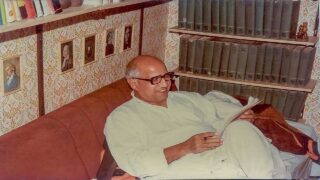Remembering Dharampal’s Seminal Contribution
Dharampal’s work provided a much needed breakthrough in the discourse on Indian education by highlighting colonial surveys conducted during the early nineteenth century. In the sphere of education, these surveys testified to the presence of a comprehensive network of patshalas and gurukuls that flourished in India prior to the advent of British.
May 22, 2023 Ankur Kakkar

